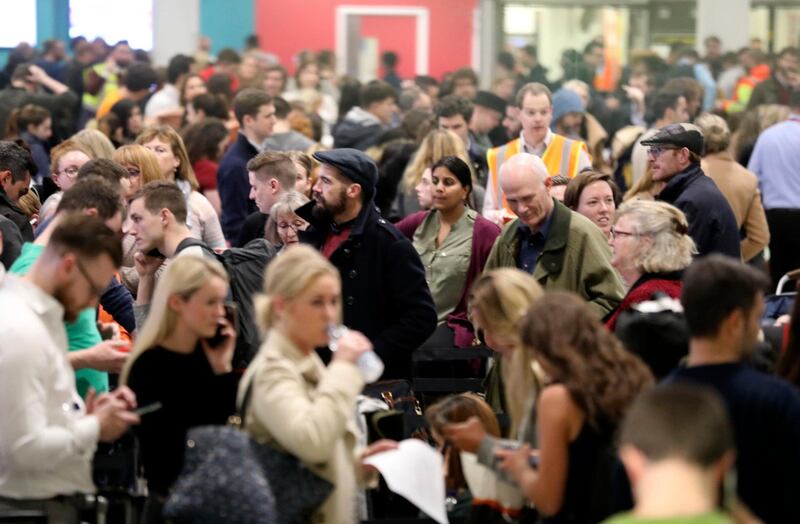Drones can undoubtedly be a force for good. Gavi, the global Vaccine Alliance partnered with the UAE, has used drone deliveries to help give lifesaving vaccinations; drone taxis and automated vehicles are expected to be used for one quarter of all journeys in Dubai by 2030 and drones flown over Mosul during ISIS’s reign of terror helped identify damage to cultural monuments. Indeed, one of the finalists in the UAE’s Drones for Good competition last year developed a search and rescue machine to find survivors in earthquakes and tornados while Dubai Municipality already operates the Flying Rescuer, a drone helping struggling swimmers at sea by dropping life buoys in the water.
Those positive aspects will give little comfort right now to the 140,000 people whose Christmas plans were ruined when drones brought one of Europe's busiest airports to a standstill. In three days of chaos and confusion last week, repeated sightings of drones close to Gatwick airport affected about 1,000 flights. The airport was back up and running this week after the British government invested more than Dh23 million in an anti-drone system to prevent a similar incident but the pandemonium raised the crucial question of how to regulate when the technology behind increasingly sophisticated unmanned aerial vehicles is developing faster than ideas to stop them in their tracks.
Individual countries have wrestled with legislation for recreational drones, from India and Saudi Arabia, which have banned them outright, to Canada and Britain, which have strict laws on where they can be flown. However, as the Gatwick incident demonstrated, even a ban on flying drones within one kilometre of an airport failed to stop an offender, who has yet to be caught. In Canada, a drone hit a passenger plane landing in Quebec last year. With systems to intercept drones still far from perfect – geofencing software built into commercial drones to prevent them from breaching no-go zones can be hacked or disabled, for example – a global registry of drone owners is a possibility, an idea backed by the UN's aviation agency. In many ways, the UAE is leading the charge in ensuring drone operators can still enjoy their devices within limitations. Laws introduced in 2016 make it mandatory for everyone who buys drones to register them and complete a training course while all drones must be connected to a national tracking system monitoring their height and speed. The Ministry of Interior and General Civil Aviation Authority also ran a campaign last year urging drone owners to act responsibly. In a world riven by conflict and in which social media is increasingly used to document our lives, security and privacy will be key issues in considering laws to regulate drone use. It is imperative to reach an accord on universally accepted standards of behaviour before the perils of drones outweigh the positives.





